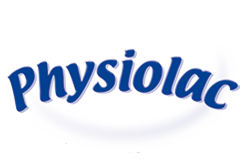
Between 0 and 6 months
Weaning
Babies only have milk up to 6 months old. This food is essential for growth and development. The choice to breastfeed or formula feed is yours, it is however difficult to change once breastfeeding has stopped.
Weaning means switching from breast milk to formula. For it to be successful, gradually replace feeds with bottles of formula milk. For example, replace 1 feed with 1 bottle for 3 days, then 2 feeds with 2 bottles over the next 3 days and so on. Gradual reduction in the number of feeds naturally causes lactation to reduce.
From a nutritional perspective, your pharmacist or doctor can advise you on a formula milk similar to breast milk for easy transition.
In some breastfed babies, for example with a family history of allergies, an interim stage with a hypo-allergenic milk may be necessary.
Seek advice from a health professional.
Formula milk
There are several types of formula milk to satisfy the specific requirements of infants.
Standard milk and "follow-on" milk
Standard milk is suitable for most infants, when all is well. There are "follow-on" milks which are more suitable for breastfed infants for easy weaning. Choose a milk similar to breast milk, i.e. with a protein ratio as follows: caseins/soluble proteins identical or close to 40/60. All milk provides essential fatty acids, all vitamins and all minerals which your baby needs, in accordance with regulations.
"Follow-on" milk is generally enriched with prebiotics or probiotics, to preserve the correct intestinal flora for a breast fed baby.
See your pharmacist or doctor who can advise you on weaning your baby.
Hypo-allergenic milk (HA)
These are milks that are used if there is a risk of allergy, i.e. in children with a family history of allergies.
In HA milk, the allergenic capacity of proteins has been reduced, so there is less risk of the baby being allergic (allergy to cow's milk proteins, eczema, etc.).
Milk and lactose-free foods
Milk and lactose-free foods are generally for babies with diarrhoea. They are also suitable for lactose-intolerant babies and children. When a baby has diarrhoea, lactose is removed because as it is poorly digested, it can cause discomfort such as colic and/or worsening diarrhoea.
Milk and anti-reflux foods (AR)
Anti-reflux milk is pre-thickened formula that lessens reflux. The thickeners in these milks are generally carob and starch. Carob is a good thickener but it can cause intestinal fermentation, bloating and constipation. Carob thickens from the bottle.
Use an anti-reflux milk thickened with starch, it will have fewer side effects and will remain a liquid in the bottle (starch only thickens in the stomach).
Hungry or Nutri-regulation milk
Hungry milk contains more slow carbohydrates than standard milk, thereby delaying the hunger sensation in babies.
They can also substitute standard milk for the evening feed to delay the first bottle the following day.
Making up a bottle
A few precautions:
To control the temperature of the bottle, the back of your hand is not sensitive enough. Test it on the inside of your wrist. A bottle that is too hot can burn a baby's mouth and tongue. Avoid heating water in a microwave.
Important: Not preparing bottles properly can pose a risk to your baby's health.
Hygiene:
1) Wash the bottle, teat ring, teat and cap with washing-up liquid and a bottle brush. It is very important to check that there is no milk left in the bottle. Even a tiny amount can quickly become a "culture".
2) It is strongly recommended to sterilise bottles, teats and other accessories up to the age of 4 months.
3) Once a pack of milk is opened, it must be hermetically sealed with the plastic cover and kept in a cool dry place.
More information can be found on the back of packs of milk or in the "our products" section.
The Physiolac solution
In line with national breastfeeding promotional campaigns, promotions or advertising of formula milk is forbidden (formula milks 0-6 months and 0-12 months), this is why Gilbert Laboratories and Physiolac, conscious of current regulations, cannot publicise 1st milks and products.
For food for infants less than 6 months, seek advice from your pharmacist or doctor who can help you choose a formula milk*.
* Important note: breast milk is the best infant food









